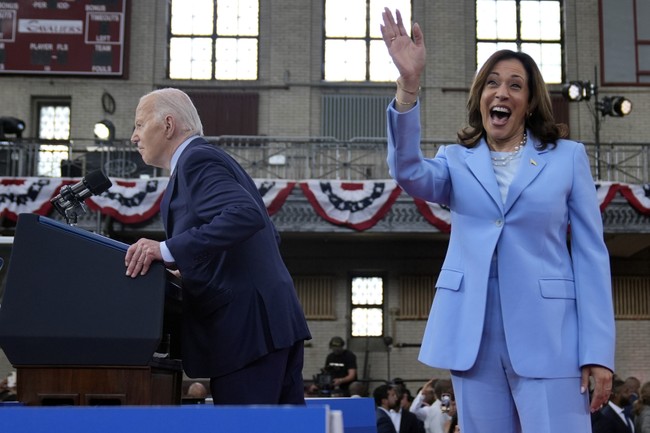The Complex Dynamics of US-Taiwan-China Relations
Analyzing the intricate political, economic, and military ties between Taiwan, the United States, and China, and the tensions that arise from this trilateral relationship.
Published July 18, 2024 - 00:07am

Image recovered from deccanherald.com
The relationship between Taiwan and the United States has been a focal point in East Asian geopolitics, originating from the Cold War era. During this period, Taiwan hosted United States military bases under a Mutual Defence Treaty. However, 1979 marked a significant shift when the US transitioned official recognition from the Taipei government to Beijing, thus ending the defence treaty. The Taiwan Relations Act introduced that year provided a legal framework for the US to supply Taiwan with defensive means without obligating direct military intervention.
US policy has since followed a path of 'strategic ambiguity,' often leaving open the question of under what circumstances the US would defend Taiwan from a Chinese attack. This policy, integral to maintaining a balance in cross-strait relations, has been occasionally clarified by statements from leaders such as President Joe Biden, who asserted his willingness to use force if necessary.
Taiwan continues to maintain a robust defense posture bolstered by American military training and intelligence sharing. Taiwan's F-16 pilots undergo training at the Luke Air Force Base in Arizona, and high-level defence officials from Taiwan frequently visit the United States, reinforcing their longstanding defence ties.
In a broader geopolitical context, Taiwan's status remains a contentious issue, especially in light of recent visits by delegations from countries like Ireland. These visits, although non-diplomatic, often provoke strong reactions from Beijing. The recent visit by five Irish Senators to Taiwan sparked a protest from China's ambassador to Ireland, who reiterated the 'one-China policy.' This policy is a cornerstone of China's foreign relations and a point of contention with Taiwan, which is regarded by Beijing as a separatist province.
These diplomatic engagements highlight the nuances of international relations; while Ireland does not have formal diplomatic ties with Taiwan, the economic and cultural connections are well established. Statements from the visiting Senators were careful to acknowledge the 'one-China policy,' while emphasizing their support for positive relations with both China and Taiwan.
The economic dimension of the US-Taiwan relationship is exemplified by the strategic importance of Taiwan's semiconductor industry. Taiwan Semiconductor Manufacturing Company (TSMC), the world's largest computer chipmaker, plays a crucial role in the global supply chain for high-tech industries. The US has bilateral interest in safeguarding this industry from potential disruptions arising from China's assertive actions near the Taiwanese border.
The interplay between geopolitics and technology was underscored by comments from political figures like former President Donald Trump, who proposed that Taiwan should financially compensate the US for its defense. These remarks, reflecting a transactional approach to foreign policy, reverberate through the semiconductor industry. Concurrently, the Biden administration's considerations of imposing stricter export controls on advanced chips to China further complicate the technological and economic landscape.
From a security perspective, the US remains committed to ensuring Taiwan's defense capabilities, as outlined in the Taiwan Relations Act. However, the complexities of this trilateral relationship are evident in the ongoing military activities, such as China's recent warplane flights near Taiwan and missile test-firings within its territory. These maneuvers are perceived as demonstrations of Chinese military power and serve as reminders of the persistent threat levels Taiwan faces.
Analysts from various geopolitical centers express divergent views on these issues. Chen Shiliang, from East China Normal University, sees the US's actions as leveraging Taiwan to contain China's growth. He asserts that the US aims to exert financial extraction from Taiwan through arms sales and defence agreements, indicative of a broader strategy to limit China's ascent as a global power. Such interpretations are reflective of a broader narrative that frames Taiwan as a pawn in Sino-American strategic rivalry.
These tensions and policies ultimately shape Taiwan's security environment and its diplomatic engagements. While the US upholds the 'one-China policy,' it simultaneously recognizes Taiwan's significance in regional security, economic stability, and its role as a democratic ally in the Asia-Pacific.






